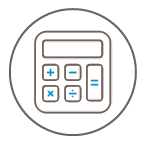What to Know About Student Loans
Other Options
Deferment
At some point, you may face circumstances that make repayment difficult. When this happens, you might qualify for a deferment, which is a temporary postponement or payment adjustment that allows you time to get back on your feet. Contact your loan holder to see if you qualify.
- Things to keep in mind
- During deferment, the government will pay the interest on your subsidized loans.
- You are responsible for paying interest on any unsubsidized loans. If you don’t, the interest will accrue, meaning the interest will be added to the principal when the deferment is over. This added interest will increase your total loan amount.
- What life circumstances qualify?
Generally, deferments are granted for:- Unemployment
- Economic hardship
- Military service
- Enrollment in school on at least a half-time basis
- Study in a graduate fellowship program
- Participation in a rehabilitation training program for disabled individuals
Other types of deferments might also be available. Check with your loan holder or the company that services your loan for more information.
- Requesting a deferment
First, contact your loan holder. Then, you can apply by downloading, completing, and submitting the appropriate form. Remember that each deferment request must be approved before your payments will be postponed.- Economic Hardship Deferment Request (HRD)
- Unemployed Deferment Request (UNEM)
- In-School Deferment Request (SCH) (in Spanish)
- PLUS Borrower with Dependent Student Deferment Request (PLUS) (in Spanish)
- Temporary Total Disability Deferment Request (TDIS) (in Spanish)
- Military Deferment Request (MIL)
For more information about deferment, visit the U.S. Department of Education’s website.








